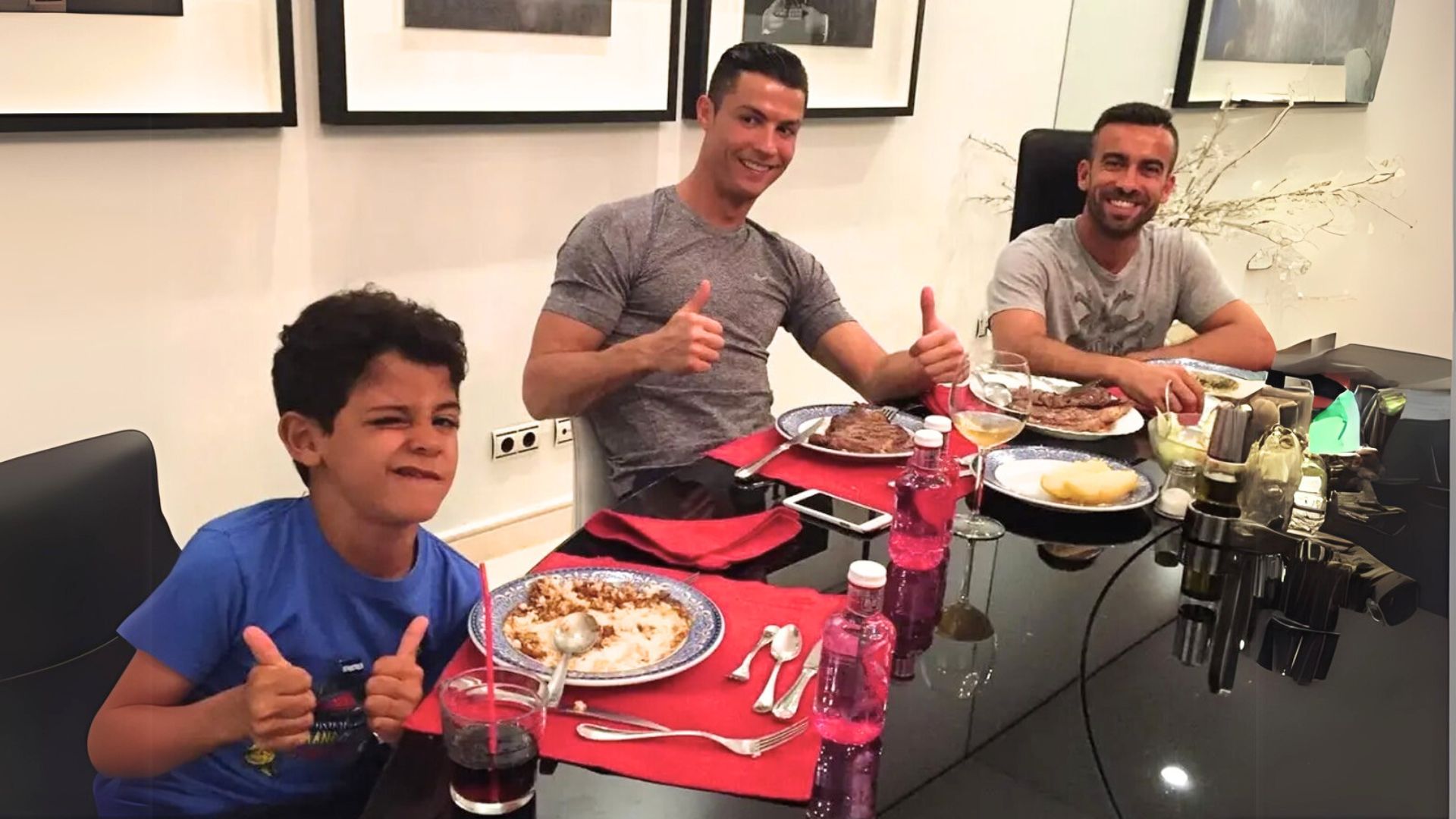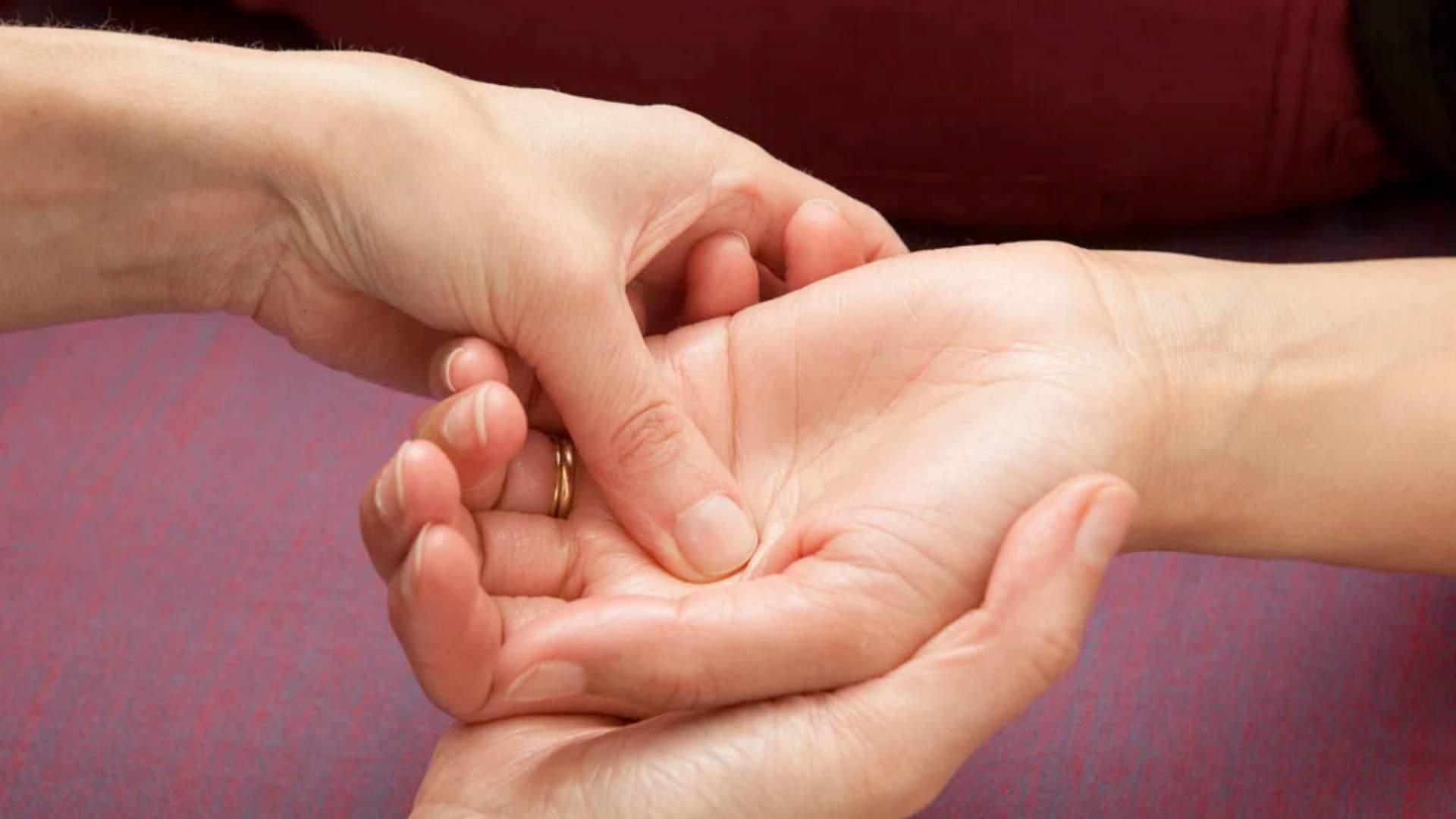In the world of high achievers, morning routines are often revered as the secret weapon for peak performance. From CEOs to elite athletes, the way one begins the day is believed to dictate success. But is this just a glorified trend, or is there actual science backing the power of structured mornings?
Neuroscientists, psychologists, and behavioral economists argue that the first hour after waking up is the most critical period for brain function, decision-making, and long-term productivity.
Circadian Rhythms and the Brain’s Golden Hour
The human brain operates on a 24-hour circadian rhythm, which governs everything from metabolism to cognitive function. According to Dr. Satchin Panda, a leading researcher at the Salk Institute for Biological Studies, the morning period is when the brain is most sensitive to external stimuli.
When we wake up, cortisol levels peak, helping us transition from sleep to alertness. This is a natural biological process that enhances focus and cognitive performance—provided it is not hijacked by distractions like checking social media or emails first thing in the morning.
A study conducted by Harvard Medical School found that individuals who followed a structured morning routine, including mindfulness and goal-setting exercises, exhibited higher levels of cognitive flexibility, problem-solving ability, and emotional regulation throughout the day. In contrast, those who woke up and immediately checked their phones or responded to emails experienced heightened stress levels and reduced ability to concentrate.
The Neuroscience of Decision Fatigue and Willpower
One of the most overlooked reasons why a strong morning routine is essential is decision fatigue—a cognitive phenomenon where the brain’s ability to make decisions declines over time.
Dr. Roy Baumeister, a psychologist at Florida State University, conducted pioneering research showing that willpower is a finite resource. Each decision we make—from choosing an outfit to selecting what to eat—gradually depletes our cognitive energy.
This is precisely why billionaires and high performers reduce trivial decisions in the morning. Steve Jobs famously wore the same black turtleneck every day, while Barack Obama limited his wardrobe to only gray and blue suits. Mark Zuckerberg follows the same principle, stating, “I really want to clear my life so that I have to make as few decisions as possible about anything except how to best serve this community.”
Scientific studies reinforce this approach. Researchers at the University of Minnesota found that people who made multiple decisions early in the day experienced weaker impulse control, reduced focus, and an increased likelihood of procrastination later in the day. This suggests that preserving mental energy for critical thinking tasks, rather than wasting it on routine decisions, can significantly enhance long-term performance.
Dopamine, Serotonin, and the Brain’s Reward System
The way we start our mornings also influences the brain’s neurotransmitter balance, which in turn affects motivation, productivity, and emotional resilience. The act of completing small tasks—such as making the bed, meditating, or journaling—releases dopamine, the brain’s “reward chemical.”
According to research from Stanford University, dopamine is critical for motivation and goal-directed behavior. The mere act of setting and achieving a small morning goal can trigger a cascade of biochemical rewards that make subsequent tasks feel easier to accomplish.
A study published in the journal JAMA Psychiatry revealed that individuals who had morning exposure to natural light experienced lower rates of depression and anxiety, and higher levels of mental clarity throughout the day. This explains why some of the world’s most successful people prioritize stepping outside, even if just for a few minutes, as soon as they wake up.
Why Structured Routines Reduce Stress and Enhance Focus
In a world filled with unpredictability, routines serve as an anchor for stability. Dr. Andrew Huberman, a neuroscientist at Stanford University, explains that structured routines help the brain enter a state of automaticity, where certain behaviors become effortless over time. This allows individuals to preserve cognitive energy for complex tasks while simultaneously reducing anxiety and stress.
A compelling study from the University of California, Los Angeles (UCLA) tracked two groups of executives: one group followed a consistent morning routine with mindfulness practices, while the other did not.
The results were striking. The structured group reported 25% lower stress levels, 18% greater task efficiency, and significantly higher creative problem-solving abilities. This suggests that a predictable morning structure can act as a cognitive safety net, reducing the mental strain of navigating daily challenges.
Why Mornings Matter More Than We Think
While many people assume that success is built through sheer willpower and hard work, science tells us otherwise. The research is clear—the way we start our day has a direct impact on our cognitive efficiency, emotional regulation, and long-term success. By aligning morning habits with our biological and neurological wiring, we can optimize decision-making, enhance focus, and set the foundation for peak performance.
In the world of billionaires, peak athletes, and top executives, mornings are not left to chance. They are engineered for success. The question is: are you setting up your mornings to work for you, or against you?
How Billionaires Start Their Day: Mindfulness as a Core Habit
If there is one secret that unites the world’s most successful people—whether in business, sports, or entertainment—it is mindfulness. From billionaires like Jeff Bezos and Ray Dalio to icons like Virat Kohli and Taylor Swift, mindfulness is not just a habit; it is an “inner operating system” that optimizes decision-making, creativity, and emotional resilience.
While the idea of mindfulness is often associated with monks and meditation retreats, science now confirms that this ancient practice plays a crucial role in modern success.
Studies from Harvard University, the University of California, and the Max Planck Institute reveal that regular mindfulness practice enhances cognitive flexibility, emotional intelligence, and strategic thinking—three key traits of high achievers.
Mindfulness as an “Inner Operating System”
Think of mindfulness as the brain’s high-performance software—the mental equivalent of upgrading from an outdated processor to a supercomputer. While many people rush into their day distracted and reactive, billionaires and top performers take time to calibrate their minds before engaging with the outside world.
Dr. Daniel Goleman, a psychologist famous for his work on emotional intelligence, explains that mindfulness improves executive function, the part of the brain responsible for planning, decision-making, and impulse control. This is why leaders who meditate regularly tend to remain calm under pressure, make better strategic choices, and sustain high levels of productivity over long periods.
To understand how mindfulness plays out in the real world, let’s look at how some of the world’s most successful individuals incorporate this practice into their morning routines.
Jeff Bezos: Decision-Making Clarity Through Slow, Mindful Mornings
The world’s richest man for several years, Jeff Bezos, has an unusual approach to mornings—he refuses to rush. Unlike many CEOs who start their day with back-to-back meetings, Bezos takes a slow, deliberate approach to the first few hours of his day, engaging in quiet reflection and light reading before diving into work.
“I like to putter in the morning,” Bezos once said in an interview. This seemingly unproductive habit is actually a form of active mindfulness, allowing him to clear mental clutter before making high-stakes decisions. Neuroscience backs this approach—studies from MIT show that slow, intentional mornings reduce cognitive overload and improve long-term strategic thinking.
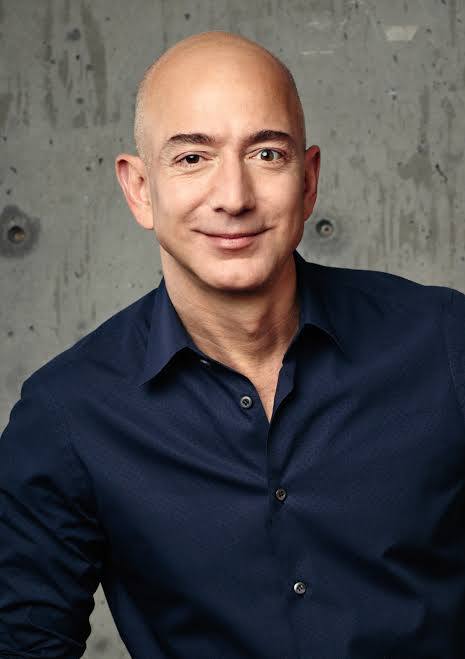
Jeff Bezos is the founder of Amazon and one of the world’s most influential entrepreneurs. He is known for revolutionizing e-commerce and expanding into sectors like space exploration through his company, Blue Origin.
Oprah Winfrey: Meditation as a “Daily Ritual for Inner Power”
Oprah Winfrey, one of the most influential media moguls in history, credits much of her success to mindfulness. She has been practicing meditation for decades, often starting her day with 20 minutes of silent reflection.
“The stillness is my anchor,” Oprah has said. “It allows me to set the tone for the day and respond to challenges with clarity rather than reacting emotionally.”
Harvard neuroscientist Dr. Sara Lazar’s research confirms Oprah’s experience, showing that meditation thickens the prefrontal cortex, the brain region responsible for higher-order thinking and emotional regulation. This means that regular mindfulness practice literally rewires the brain for success.

Oprah Winfrey is a renowned media mogul, talk show host, and philanthropist. She is celebrated for her influential TV show, The Oprah Winfrey Show, and her impact on entertainment, literature, and social causes.
Ray Dalio: Transcendental Meditation for Compounding Success
Billionaire hedge fund manager Ray Dalio, founder of Bridgewater Associates, is perhaps the most vocal advocate for mindfulness in the business world. Dalio has practiced Transcendental Meditation (TM) for over 40 years, attributing much of his wealth and success to the mental clarity it provides.
In his book Principles, Dalio describes how meditation helps him enter a state of deep focus, free from anxiety and emotional distractions. Scientific studies confirm this—research from Yale University shows that Transcendental Meditation significantly reduces cortisol levels while increasing creativity and problem-solving ability.
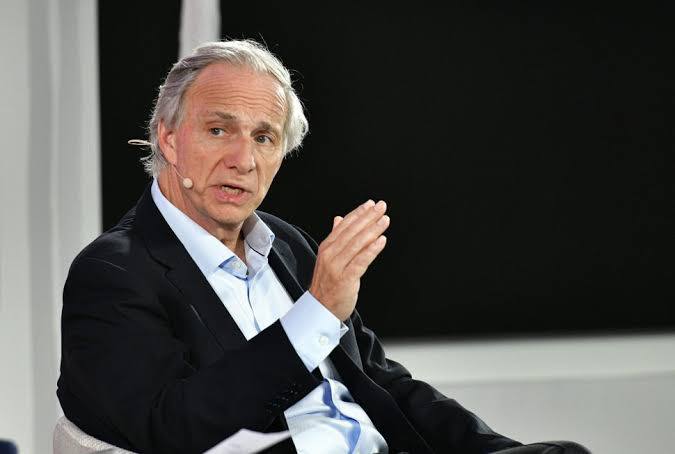
Ray Dalio is the founder of Bridgewater Associates, one of the world’s largest hedge funds. He is known for his principles-based approach to investing and his influential book, Principles: Life and Work.
Bill Gates: Finding Focus Through Meditation
Microsoft co-founder Bill Gates was not always a believer in mindfulness. However, in recent years, he has integrated meditation into his morning routine, inspired by books on neuroscience and mental performance.
Gates has said that meditation sharpens his ability to observe his own thoughts, reducing stress and improving focus. His approach aligns with a study from Johns Hopkins University, which found that meditation produces measurable reductions in anxiety, leading to better decision-making in high-stakes environments.
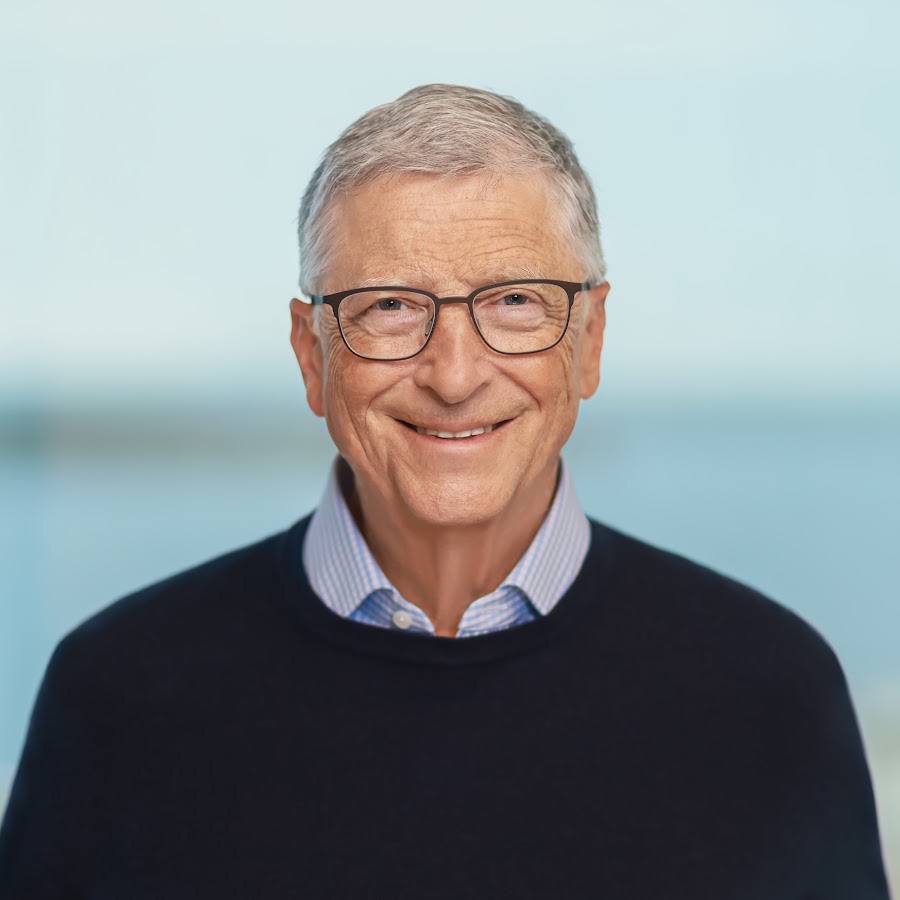
Bill Gates is the co-founder of Microsoft and a prominent philanthropist. Through the Bill & Melinda Gates Foundation, he has contributed significantly to global health, education, and poverty alleviation efforts.
Larry Page: Using Mindfulness for Innovation
Larry Page, co-founder of Google, attributes much of his creativity to moments of mindful stillness. Unlike many CEOs who are obsessed with maximizing every second, Page prioritizes quiet thinking time in his mornings.
Google has even incorporated mindfulness into its company culture, developing an internal program called Search Inside Yourself, which helps employees cultivate focus and emotional intelligence. Research from Stanford University shows that companies that integrate mindfulness training see a 20% increase in employee productivity and a 32% improvement in overall job satisfaction.
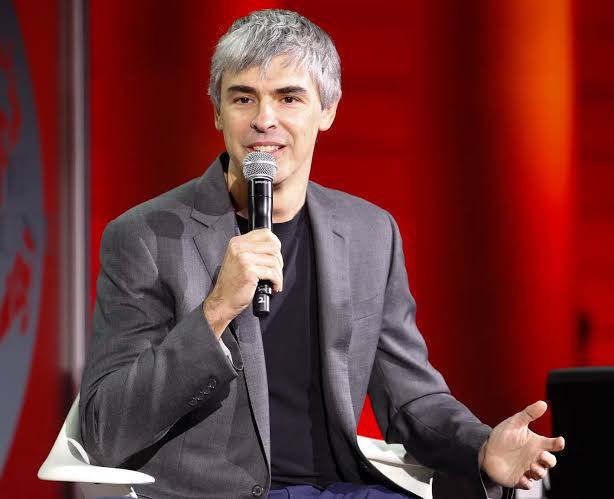
Larry Page is the co-founder of Google and former CEO of its parent company, Alphabet Inc. He is known for revolutionizing internet search technology and driving innovation in AI and autonomous vehicles.
Mindfulness in Indian Business Tycoons: Mukesh Ambani, Anand Mahindra, and Gautam Adani
Indian business magnates such as Mukesh Ambani, Anand Mahindra, and Gautam Adani have all integrated mindfulness practices into their daily routines, allowing them to sustain high performance, make better decisions, and navigate volatile market conditions with a clear mind.
Mukesh Ambani, India’s richest man and chairman of Reliance Industries, starts his day with a strict routine of meditation and yoga. He attributes much of his success to mental clarity and discipline, emphasizing that business leaders must not only make strategic decisions but also develop a resilient mindset.
A well-balanced mind, he believes, is crucial for leading an empire that spans industries from petrochemicals to telecommunications. Scientific research supports this perspective—studies from the University of California, Berkeley show that mindfulness enhances cognitive flexibility, which is essential for executives handling multi-sector businesses like Ambani.
Anand Mahindra, chairman of the Mahindra Group, has often spoken about the importance of self-reflection and emotional intelligence in leadership. He has shared insights on how mindful leadership fosters better corporate decision-making, builds trust, and enhances team morale.
Mahindra’s approach is in line with findings from Harvard Business School, which state that CEOs who practice mindfulness report lower stress levels, increased patience, and improved long-term strategic thinking.
Similarly, Gautam Adani, the founder of the Adani Group, begins his day with silent contemplation and strategic visualization. Given that his businesses operate in highly sensitive sectors such as energy and infrastructure, maintaining a steady, focused mind is critical.
A study by INSEAD Business School found that leaders who engage in regular mindfulness exercises are 32% more effective at handling crises and high-pressure negotiations—a skill essential for a business tycoon like Adani, who must navigate regulatory challenges and market fluctuations daily.
These Indian business titans demonstrate that mindfulness is not just about relaxation—it is a tool for high-stakes decision-making, resilience, and long-term success.
Scientific research overwhelmingly supports the link between mindfulness and high performance. Studies from institutions like Yale, Harvard, and Oxford show that mindfulness strengthens the prefrontal cortex, improves working memory, and enhances problem-solving ability.
Executive Function: Mindfulness increases cognitive flexibility, allowing leaders to think strategically and adapt to change.
Creativity: Mindfulness boosts divergent thinking, the ability to generate novel ideas—a critical skill for innovators like Steve Jobs and Larry Page.
Emotional Control: Mindfulness reduces reactivity in the amygdala, the brain’s fear center, helping individuals remain composed in high-pressure situations.
Mindfulness in Sports and Entertainment
Mindfulness is not limited to boardrooms and business tycoons—it is equally crucial in the world of sports and entertainment, where mental clarity, focus, and resilience play a pivotal role in success.
Some of the biggest names in sports and Hollywood, including Cristiano Ronaldo, Lionel Messi, Virat Kohli, Taylor Swift, and Brad Pitt, actively practice mindfulness techniques to enhance their performance and maintain emotional balance under pressure.
Cristiano Ronaldo: Visualization and Pre-Match Mental Rehearsal
Cristiano Ronaldo, widely regarded as one of the greatest footballers of all time, attributes much of his success to mental training, visualization, and meditation. Before each game, Ronaldo engages in a mindful visualization exercise, where he mentally rehearses different match scenarios—seeing himself scoring goals, making key passes, and handling pressure situations.
A study from the Journal of Sports Science & Medicine confirms that athletes who practice visualization techniques show improved muscle coordination, faster reaction times, and enhanced performance under stress.

Cristiano Ronaldo is a legendary Portuguese footballer known for his exceptional skills, goal-scoring abilities, and athleticism. He has played for top clubs like Manchester United, Real Madrid, Juventus, and Al Nassr, winning numerous awards and breaking multiple records.
Lionel Messi: Breathwork for Emotional Control
Lionel Messi, another football legend, follows a structured breathing exercise routine before every match to regulate his nerves and maintain composure. Research from Stanford University reveals that deep breathing techniques activate the parasympathetic nervous system, reducing stress and improving decision-making speed—an essential skill for a footballer who needs to react instantly on the field.
Virat Kohli: Meditation for Peak Performance
Virat Kohli, India’s cricketing superstar, has been a strong advocate for meditation and self-discipline. Kohli has spoken openly about how mindfulness meditation has helped him manage his aggression and channel his focus into his game. He practices guided meditation and mindful breathing, techniques that are scientifically proven to lower cortisol levels (the stress hormone) and improve focus.
A 2019 study from the National Institute of Mental Health and Neurosciences (NIMHANS) in India found that cricketers who practiced meditation showed higher levels of concentration and better emotional control under high-pressure conditions.

Virat Kohli is an Indian cricketer known for his aggressive batting style and leadership skills. He has captained the Indian cricket team and holds numerous records, making him one of the greatest batsmen in modern cricket.
Taylor Swift: Journaling as a Form of Mindfulness
Taylor Swift, one of the most successful musicians in history, credits journaling and quiet reflection as key components of her mental well-being. In interviews, she has shared that writing down her thoughts and emotions daily helps her process stress, clarify her goals, and stay creatively inspired.
A study from Cambridge University found that journaling reduces overthinking and enhances emotional intelligence, which is crucial for artists who need to balance creativity with intense public scrutiny.
Brad Pitt: Mindfulness to Manage Stress and Fame
Hollywood star Brad Pitt has spoken about how mindfulness meditation helped him overcome stress, anxiety, and the overwhelming nature of fame. Pitt, like many celebrities, has faced intense public pressure, and mindfulness allows him to stay centered despite external chaos.
His experience aligns with research from Harvard Medical School, which found that actors and performers who practice mindfulness show reduced symptoms of anxiety and depression, along with greater emotional resilience.
Scientific research confirms that mindfulness significantly enhances athletic and artistic performance. A meta-analysis from the Journal of Applied Sport Psychology found that athletes who practiced mindfulness meditation showed:
Reduced anxiety and improved focus during high-pressure situations.
Faster reaction times and increased coordination.
Lower levels of stress-related injuries due to better body awareness.
Similarly, a study from the American Psychological Association found that musicians and actors who engaged in mindfulness practices reported:
Greater emotional regulation and creativity.
Less performance anxiety and stage fright.
Stronger connection to their audience and deeper artistic expression.
Whether on the football field, the cricket pitch, the concert stage, or the silver screen, mindfulness is proving to be an essential tool for maintaining peak performance and handling the immense pressure of success. It is a testament to the fact that mental discipline is just as important as physical talent—and those who train their minds are the ones who rise to the top.
The 5-Step Billionaire Morning Mindfulness Framework
Success leaves clues, and when examining the habits of billionaires, elite athletes, and world-class performers, one theme emerges: how they start their day determines how they win their day.
The first hour after waking is not just about getting out of bed—it’s about priming the mind and body for peak performance. Neuroscience has proven that the quality of our mornings directly impacts cognitive function, decision-making, and emotional resilience throughout the day.
From Jeff Bezos to Ray Dalio, Oprah Winfrey to Warren Buffett, ultra-successful individuals follow a structured morning mindfulness framework that ensures clarity, focus, and energy.
This framework isn’t about just another self-improvement fad—it is grounded in brain science, psychology, and human physiology. Let’s break down this five-step billionaire morning routine, backed by research and real-world case studies.
Waking Up with Intention
The first few minutes after waking up set the brain’s neurochemical tone for the day. Most people sabotage this golden period by hitting the snooze button, scrolling social media, or jumping into emails. But billionaires and high achievers wake up with deliberate intention, allowing their brains to transition smoothly from sleep to high performance.
Neuroscience confirms that the “No Snooze Rule” is a game-changer for dopamine regulation. Dopamine, the neurotransmitter associated with motivation, focus, and goal-directed behavior, peaks naturally in the morning.
However, when you hit snooze and fall back into fragmented sleep cycles, you disrupt dopamine production, leading to grogginess, procrastination, and reduced mental clarity. A study from the University of Notre Dame found that people who hit snooze were significantly more likely to experience brain fog, lower productivity, and emotional instability throughout the day.
At the same time, cortisol—the body’s natural “wake-up hormone”—spikes 30–45 minutes after waking. A research paper from Harvard Medical School found that this cortisol surge plays a crucial role in enhancing alertness, problem-solving ability, and emotional control.
The key, however, is to leverage this cortisol window effectively. Instead of checking emails or consuming information passively, billionaires use this time to engage in mindful self-awareness, light movement, or gratitude exercises.
For instance, Oprah Winfrey starts her day with silent reflection, setting an intention for the day rather than jumping straight into tasks. Jeff Bezos follows a slow, relaxed morning routine, prioritizing mental clarity over immediate decision-making.
Their approach aligns with studies from Stanford University, which found that individuals who start their day with mindful, low-stress activities experience higher cognitive function and reduced anxiety levels throughout the day.
Breathwork & Meditation (20-30 Minutes)
Once awake, the next step in the billionaire morning framework is intentional breathwork and meditation. Neuroscientists have found that meditation and controlled breathing alter brainwave patterns, enhancing focus, creativity, and emotional regulation.
Brain imaging studies from Harvard Medical School show that mindfulness meditation shifts brain activity from high-beta (stressful, chaotic thinking) to alpha and theta waves, which are associated with enhanced problem-solving, deep relaxation, and heightened intuition.
This is why billionaire investors like Ray Dalio practice Transcendental Meditation (TM), a method designed to induce a state of deep mental clarity and inner calm. Dalio has called TM “the single biggest factor in my success”, crediting it for his ability to remain composed during market volatility and high-pressure business decisions.
Other high achievers incorporate breathwork techniques to regulate their nervous system. Warren Buffett, known for his extraordinary patience and decision-making ability, practices slow, mindful breathing before stepping into high-stakes meetings.
In the sports world, legends like Kobe Bryant and Michael Jordan used breath control exercises to enter a flow state before games. Research from the National Institute of Mental Health confirms that deep breathing exercises can lower cortisol levels by 40% and improve attention span by 22%—an essential advantage in high-performance fields.
Visualization & Mental Priming
Once the brain is in a calm, focused state, high achievers move into visualization and mental priming—a powerful technique backed by neuroscience and sports psychology. Studies from the Cognitive Neuroscience Society show that mental rehearsal can activate the same neural circuits as actual physical practice, strengthening neural pathways associated with success.
This technique has been used by some of the greatest minds in history. Michael Jordan visualized every possible game scenario before stepping onto the court, allowing his brain to prepare for challenges before they happened. Jim Carrey famously wrote himself a $10 million check when he was a struggling actor, visualizing himself as a successful Hollywood star. A decade later, he was earning precisely that amount per film.
In the corporate world, billionaires like Elon Musk and Bill Gates use visualization to mentally map out business strategies before execution. By mentally rehearsing their day before it begins, they reduce uncertainty, enhance confidence, and increase their ability to handle complex decisions with ease.
Movement & Cold Exposure
Physical movement is the missing piece in many people’s morning routines, yet it is a non-negotiable habit among billionaires. Exercise in the morning has been proven to increase endorphins, serotonin, and norepinephrine, neurotransmitters that enhance mood, motivation, and cognitive function.
Some high performers, like Tony Robbins, take this even further with cold exposure therapy. Robbins starts his day with a plunge into 57-degree water, a practice that triggers norepinephrine release, leading to higher alertness, improved focus, and increased resilience to stress.
This aligns with research from the European Journal of Applied Physiology, which found that cold showers can increase dopamine levels by 250%, providing an instant mental clarity boost.
The Wim Hof Method, popularized by extreme athlete Wim Hof, has gained attention among elite performers, including Silicon Valley CEOs and Wall Street investors. Studies show that cold exposure and breathwork together enhance immune function, reduce inflammation, and improve overall energy levels—a critical advantage for individuals operating at the highest levels.
The Billionaire’s First Hour – Deep Work & Focus
The final step in the billionaire morning framework is how they engage with their first work block. Neuroscientists have found that our brains are naturally most focused in the first 2-3 hours after waking up—a period often referred to as the “biological prime time”.
Ultra-successful individuals capitalize on this dopamine-rich window by engaging in deep work—high-value tasks that require intense concentration. Research from the University of Chicago found that individuals who prioritized deep, distraction-free work in the morning completed tasks 40% faster and with higher accuracy than those who worked in fragmented, multi-tasking environments.
To maintain peak focus, billionaires often practice dopamine fasting, avoiding digital distractions, emails, and social media during the first hour. Steve Jobs was known for spending his mornings brainstorming and strategizing without interruptions. Warren Buffett spends his early hours reading and thinking, rather than reacting to external demands.
A study from Stanford University concluded that single-tasking (focusing on one deep task at a time) leads to a 47% increase in productivity compared to multi-tasking, which drains mental energy. This is why high achievers structure their first work session to be distraction-free, focusing on one high-impact task before engaging with the rest of the world.
The Dark Side of Morning Routines: Myths & Mistakes
For years, self-help gurus and productivity experts have popularized the idea that following a billionaire’s morning routine will unlock the same levels of success.
The internet is filled with articles urging people to wake up at 4 AM, take ice baths, meditate for 20 minutes, journal their goals, and follow an intense workout—all before breakfast. The assumption is simple: if Jeff Bezos, Elon Musk, or Oprah Winfrey do it, then it must be the key to their achievements.
But copy-pasting a billionaire’s routine doesn’t necessarily translate to success. While structured mornings have undeniable benefits, the reality is that many people struggle to implement them effectively. Worse, blindly following someone else’s formula can lead to fatigue, stress, and even burnout rather than improved productivity.
Why Copy-Pasting Billionaire Habits Doesn’t Work
The biggest flaw in the “billionaire morning routine” trend is the failure to recognize individual differences in biology, lifestyle, and responsibilities. What works for a Silicon Valley CEO with complete control over their schedule may not work for a working parent juggling kids, a 9-to-5 job, and daily commutes.
A research study from the University of Oxford’s Sleep and Circadian Neuroscience Institute found that forcing people into an unnatural sleep-wake cycle can lead to decreased cognitive performance, increased stress hormones, and long-term health risks. This means that waking up at 4 AM just because a billionaire does it could actually be counterproductive if it disrupts your natural circadian rhythm.
Dr. Matthew Walker, author of “Why We Sleep”, explains that optimal morning routines should be built around an individual’s chronotype—the genetic predisposition to being a morning person or a night owl.
Many successful people thrive on early rising, but others—like Winston Churchill, who famously worked late into the night—found peak performance in a different rhythm. Forcing yourself into a routine that doesn’t align with your body’s natural tendencies is like trying to drive a sports car with the wrong type of fuel—it simply won’t perform at its best.
The Biggest Morning Mistakes That Sabotage Success
Checking Social Media & Emails First: The Dopamine Hijack
One of the worst mistakes people make in the morning is reaching for their phone immediately after waking up. Neuroscientific studies have shown that checking social media and emails first thing in the morning disrupts the brain’s dopamine system, leading to increased anxiety and reduced focus throughout the day.
Dopamine, the neurotransmitter responsible for motivation and reward, is naturally at its highest levels in the morning. When you check your phone right after waking up, you flood your brain with instant gratification, causing a sharp spike in dopamine. This creates a dopamine hijack, making it harder to focus on deep work because your brain craves more quick hits of stimulation throughout the day.
A study from the University of California, Irvine, found that people who checked emails and notifications first thing in the morning experienced higher stress levels and took longer to get back into a deep focus state compared to those who delayed digital consumption for at least an hour.
High performers understand this—Oprah Winfrey and Jeff Bezos, for example, avoid screens during their first waking moments and instead focus on mindful reflection, reading, or intentional planning.
Skipping Mindfulness & Intention Setting
Many people rush into their day without setting a clear mental and emotional foundation, leading to reactive decision-making, stress, and scattered focus. Billionaires and elite performers understand that morning mindfulness isn’t just about relaxation—it’s about gaining control over the mind before external pressures take over.
According to a study published in the Journal of Cognitive Enhancement, participants who practiced even five minutes of morning mindfulness reported a 28% increase in task efficiency and a 21% reduction in stress levels. The research suggests that even small moments of intention-setting—whether through deep breathing, gratitude exercises, or mental rehearsal—can significantly improve focus and emotional resilience.
Skipping mindfulness is like driving a car without warming up the engine—you may still move forward, but you’re more likely to stall or experience inefficiencies along the way. This is why top performers like Ray Dalio dedicate at least 20 minutes to meditation before engaging in work, ensuring that their minds are in a state of clarity and calm before making high-stakes decisions.
Poor Sleep Quality Disrupting Circadian Rhythm
No morning routine can compensate for poor sleep hygiene. Many people attempt to follow the routines of high achievers but fail to prioritize quality sleep, leading to cognitive deficits, irritability, and reduced problem-solving abilities.
Dr. Walker’s research at the University of California, Berkeley, found that individuals who get less than six hours of sleep per night experience a 40% reduction in memory retention, lower emotional control, and increased stress reactivity. In contrast, those who get seven to nine hours of high-quality sleep show improved executive function, creativity, and overall well-being.
The key takeaway? Instead of forcing yourself to wake up at 5 AM, focus on getting enough restorative sleep first. Billionaires like Jeff Bezos and Bill Gates prioritize 7-8 hours of sleep because they understand that cognitive clarity starts the night before, not just in the morning.
How to Customize Your Morning Routine for Personal Effectiveness
Rather than blindly following a billionaire’s habits, the most effective approach is to design a morning routine that aligns with your lifestyle, biology, and goals. This means understanding your body’s energy patterns, prioritizing high-impact habits, and eliminating distractions that undermine productivity.
A study from the Harvard Business Review found that people who tailored their morning routines based on their personal strengths and schedules were 33% more likely to sustain their habits long-term and reported higher satisfaction levels compared to those who followed rigid, pre-set routines.
For example, if meditation feels too abstract, consider replacing it with mindful journaling or even a short walk outside to clear your mind. If cold showers feel too extreme, a few minutes of stretching and movement can provide similar benefits in improving circulation and focus. The goal isn’t to mimic billionaires perfectly—it’s to extract the core principles of their success and adapt them in a way that works for you.
The 30-Day Billionaire Morning Challenge: A Science-Backed Path to Peak Performance
Adopting a billionaire’s morning routine doesn’t mean waking up at 4 AM, taking ice baths, or meditating for hours. The real power of a high-performance morning lies in consistency, habit formation, and progressive implementation.
Research from Stanford University’s Behavior Design Lab suggests that the most successful habit changes occur when they are gradual, sustainable, and personalized—not when they are forced in an all-or-nothing approach.
This is why the 30-Day Billionaire Morning Challenge focuses on building habits progressively, ensuring that each step becomes a natural part of daily life. Instead of attempting an extreme overhaul, individuals are encouraged to adopt small but impactful changes—a strategy that aligns with the science of neuroplasticity, the brain’s ability to rewire itself through repeated behaviors.
How to Implement These Habits Progressively
Research from Dr. BJ Fogg, a leading behavior scientist at Stanford, shows that habits stick when they are introduced gradually and anchored to existing routines. This means that rather than attempting to wake up at an ungodly hour and implement a five-step billionaire ritual overnight, it is far more effective to start small and build upon success.
For the first week, participants of the challenge might simply focus on waking up with intention—resisting the snooze button and starting the day with 30 seconds of mindful breathing.
Once this becomes natural, they can introduce a short morning reflection or a 5-minute meditation. By the second or third week, they can add light movement, visualization exercises, or a brief period of deep work. The key is momentum—small wins create psychological reinforcement, making it easier to sustain these habits in the long run.
Tracking Progress: The Power of Journaling, Habit Stacking, and Accountability
One of the biggest reasons people abandon new habits is lack of visibility into progress. A study from the American Psychological Association found that individuals who tracked their goals daily were 42% more likely to maintain their habits compared to those who relied on motivation alone.
This is why billionaires and top performers use tracking techniques like journaling, habit stacking, and accountability partnerships to ensure consistency.
Journaling is one of the simplest yet most effective tracking tools. Billionaires like Richard Branson and Warren Buffett have publicly endorsed daily journaling, which helps them reflect on progress, identify challenges, and reinforce positive behaviors.
Neuroscientists at Dominican University of California found that individuals who wrote down their goals and progress were 76% more likely to achieve them than those who did not.
Habit stacking, a concept introduced by best-selling author James Clear in Atomic Habits, involves linking new habits to existing ones. Instead of forcing a new routine from scratch, individuals can attach James Clear – Habit Stacking mindfulness exercises to habits they already perform daily.
For example, someone who drinks coffee every morning can use that time to practice gratitude or visualize the day ahead, reinforcing positive mental priming without disrupting existing routines.
Accountability methods are another powerful tool. Studies from the University of Scranton show that people who have an accountability partner—whether a friend, coach, or even an online community—are 65% more likely to follow through with a habit than those who attempt it alone. This is why many high performers, including Oprah Winfrey and Tim Ferriss, rely on mentors or peer networks to stay committed to their routines.
How Even 10-15 Minutes of Mindfulness Can Transform Productivity
A common misconception is that morning mindfulness requires long, drawn-out sessions, but research proves otherwise. A study from the University of Waterloo found that just 10 minutes of daily mindfulness practice can significantly improve focus, working memory, and stress management.
Billionaires and elite performers don’t necessarily spend hours meditating each morning—many engage in brief but powerful exercises that fit seamlessly into their schedules.
Bill Gates spends just a few minutes reflecting in silence, while Ariana Huffington practices gratitude and deep breathing for a few minutes before checking her phone. The secret isn’t the length of time—it’s the consistency.
Even professional athletes who operate under extreme time constraints, such as Cristiano Ronaldo and Virat Kohli, use short mindfulness exercises before high-pressure performances.
Kohli, for example, practices a quick mental visualization before stepping onto the cricket field, reinforcing confidence and focus. The same principle applies to CEOs who start meetings with 60 seconds of deep breathing, allowing them to make better decisions under stress.
The lesson is clear: small investments in mindfulness can yield massive returns in productivity and emotional control.
The Billionaire Morning Code—Master Your Mornings, Master Your Life
Across industries, from Wall Street to Hollywood, from sports arenas to boardrooms, one habit consistently emerges as the defining trait of ultra-successful individuals—mindfulness in the morning. It is not simply about waking up early or following a rigid routine; rather, it is about setting a mental foundation for the day, a launchpad for clarity, resilience, and high-stakes decision-making.
What makes billionaires different is not just their bank balance, but their ability to think strategically, remain composed under pressure, and execute with precision. Neuroscientific research now confirms that morning mindfulness enhances cognitive resilience, optimizes brain chemistry, and improves emotional control, all of which are essential for sustained peak performance.
Whether it is Jeff Bezos taking a slow, intentional morning, Ray Dalio practicing Transcendental Meditation, or Virat Kohli using visualization before a match, these high performers are not leaving their mental state to chance—they are engineering it.
The Science of Why Mornings Shape Long-Term Success
Research from Harvard Business School shows that leaders who prioritize mindfulness and structured morning habits make more effective decisions, experience lower stress levels, and exhibit greater focus throughout the day.
Studies from Stanford University further confirm that individuals who engage in morning breathwork, meditation, or mental priming activate brain regions associated with self-regulation and long-term strategic thinking.
This is not about fleeting motivation or self-help trends—it is about scientifically rewiring the brain for sustained high performance. Just as elite athletes condition their bodies for peak physical output, billionaires and top performers condition their minds to operate at the highest level. The first hour of the day is their training ground, setting the neural tone for every challenge, negotiation, or creative endeavor that follows.
Start Small, Be Consistent, Own Your Mornings
One of the biggest misconceptions about high-performance morning routines is that they require dramatic lifestyle changes. But the truth is, small, consistent habits compound over time, much like financial investments. Just as Warren Buffett describes the power of compounding in wealth-building, the same principle applies to mental habits—small investments in mindfulness, repeated daily, yield exponential returns in focus, creativity, and emotional resilience.
The key is to start small. Instead of forcing yourself into a 60-minute meditation or a 5 AM wake-up, begin with a simple adjustment—perhaps a minute of deep breathing, a few moments of gratitude, or avoiding your phone for the first 15 minutes of the day. As research on habit formation shows, once a small habit becomes automatic, it creates a ripple effect, making it easier to build upon.
Billionaires don’t achieve success overnight, and neither do transformative morning habits. What separates those who succeed from those who don’t is consistency, not intensity.
The Challenge: Take Control of Your Mornings for 30 Days
For those who truly want to experience the cognitive and emotional benefits of a high-performance morning, the challenge is simple: commit to experimenting with your morning routine for 30 days.
It does not have to be perfect; it just has to be intentional. Observe how small shifts—whether in breathwork, journaling, movement, or strategic solitude—begin to shape your mindset, productivity, and ability to handle stress.
Ultimately, the greatest investment you can make is not in stocks, real estate, or business ventures—it is in your mind. And the way you train your mind starts with how you train your mornings. Billionaires understand this, world-class performers live by it, and science confirms it.
Now, the question is: will you take control of your morning, or will you let the world dictate it for you? The choice is yours.
At Mindful Wholeness, we specialize in elite mindfulness coaching, cognitive optimization, and high-performance mindset training. Our science-backed techniques help individuals enhance focus, resilience, and longevity.
Whether you’re a leader, entrepreneur, or performer, our personalized sessions empower you to unlock peak potential. Book a session at MindfulWholeness.org today.
FAQ: The Billionaire Morning Routine & Mindfulness for Peak Performance
Why do billionaires focus so much on their morning routines?
Billionaires understand that how they start their day determines their long-term success. Neuroscientific studies show that structured morning habits improve cognitive function, emotional control, and decision-making. A mindful morning routine helps optimize brain chemistry, reduce stress, and create momentum for high-performance thinking throughout the day.
Is waking up early necessary for success?
Not necessarily. While many successful people wake up early, research from Oxford’s Sleep and Circadian Neuroscience Institute confirms that chronotypes vary—some people are naturally more productive later in the day. The key is to wake up at a consistent time and with purpose, rather than force an unnatural schedule.
What is the “No Snooze Rule,” and why is it important?
Hitting the snooze button disrupts dopamine production and sleep cycles, leading to brain fog and reduced focus. A study from the University of Notre Dame found that those who avoided snoozing reported better cognitive performance, lower stress levels, and higher morning energy than those who did not.
How does mindfulness impact decision-making?
Mindfulness activates the prefrontal cortex, responsible for rational thinking and problem-solving, while reducing activity in the amygdala, the brain’s stress center. Research from Harvard Medical School confirms that mindful decision-makers show higher patience, improved risk assessment, and lower impulsivity.
Do I have to meditate for 30 minutes like Ray Dalio to see benefits?
No. Studies from the University of Waterloo show that even 10 minutes of mindfulness practice can enhance focus, working memory, and stress regulation. Many billionaires, including Bill Gates and Warren Buffett, practice brief breathwork or reflection exercises instead of long meditation sessions.
What is the science behind visualization and mental priming?
Visualization activates neural pathways similar to real experiences, strengthening the brain’s ability to perform under pressure. Studies from the Cognitive Neuroscience Society show that athletes and entrepreneurs who practice mental rehearsal improve performance, confidence, and goal achievement rates.
How does morning movement enhance cognitive function?
Exercise triggers endorphins, norepinephrine, and dopamine, improving focus and mood. Research from Duke University found that morning exercise enhances learning ability, stress resilience, and long-term cognitive performance—a key reason why many billionaires incorporate movement into their routines.
Do I need cold showers like Tony Robbins and Wim Hof?
Cold exposure spikes norepinephrine levels by 250%, increasing alertness and resilience. A study in the European Journal of Applied Physiology found that cold showers improve circulation, reduce inflammation, and enhance mental clarity. However, if this feels extreme, even splashing cold water on your face can offer benefits.
Why do high achievers avoid checking their phones first thing in the morning?
Social media and emails create a dopamine hijack, causing distraction and stress before the brain has fully awakened. A University of California, Irvine study found that individuals who delayed phone use in the morning had higher focus and lower anxiety levels throughout the day.
What is “dopamine fasting,” and why do billionaires use it?
Dopamine fasting means avoiding instant gratification activities (social media, news, notifications) during the first hour of the day to keep focus high. Neuroscientists from Stanford University found that individuals who practiced dopamine regulation were better at deep work and long-term strategic thinking.
How does mindfulness affect long-term success?
Mindfulness rewires the brain, improving executive function, emotional intelligence, and creativity. Studies from Harvard Business School confirm that leaders who practice mindfulness consistently make better strategic decisions and maintain resilience under pressure.
What are the biggest mistakes people make in their morning routines?
The most common mistakes include:
Hitting snooze (disrupts dopamine circuits and sleep patterns).
Checking emails/social media first (reduces attention span and increases stress).
Skipping mindfulness (leads to reactive decision-making instead of intentional action).
Poor sleep quality (undermines all cognitive benefits of a good morning routine).
Do I have to follow every step of the billionaire morning routine exactly?
No. Neuroscience suggests that the most effective routines are customized based on individual needs. Instead of copying others, identify habits that enhance your energy, focus, and productivity, and integrate them into a morning routine that works for you.
Can mindfulness help with creativity?
Yes. Research from Stanford University shows that meditation increases divergent thinking, which is essential for innovation. Steve Jobs was known to use mindfulness to tap into creative insights that shaped Apple’s revolutionary designs.
What is the easiest way to start a mindfulness-based morning routine?
Start with one small habit, such as 30 seconds of deep breathing, 5 minutes of journaling, or a short mindful walk. According to BJ Fogg’s research at Stanford, stacking new habits onto existing ones (e.g., meditating right after brushing teeth) makes them easier to sustain.
Can morning mindfulness improve leadership skills?
Yes. Studies from Harvard Business Review found that mindful leaders have higher emotional intelligence, make more ethical decisions, and communicate more effectively. This is why executives from Google, Apple, and Goldman Sachs incorporate mindfulness into their leadership training programs.
How does poor sleep affect morning productivity?
Sleep deprivation reduces prefrontal cortex activity, leading to poor decision-making, irritability, and lower cognitive function. Research from UC Berkeley found that individuals who get less than six hours of sleep experience a 40% drop in problem-solving ability the next day.
Is journaling an effective mindfulness practice?
Yes. Journaling helps process thoughts, clarify goals, and improve self-awareness. A study from Cambridge University found that people who journal regularly experience lower stress levels and higher cognitive clarity—which is why billionaires like Richard Branson and Warren Buffett swear by it.
Can just 10 minutes of mindfulness really transform productivity?
Absolutely. A study from the University of Waterloo found that just 10 minutes of meditation significantly improves focus, emotional regulation, and task efficiency. Even short mindfulness breaks can reset the brain, leading to sustained high performance.
How can I stay consistent with my morning routine for 30 days?
The key is tracking progress and using accountability methods. Neuroscientific research shows that habit journaling, habit stacking, and having an accountability partner increases the likelihood of sustaining new routines by over 60%. The goal is not perfection but progress—small daily improvements compound into long-term success.

